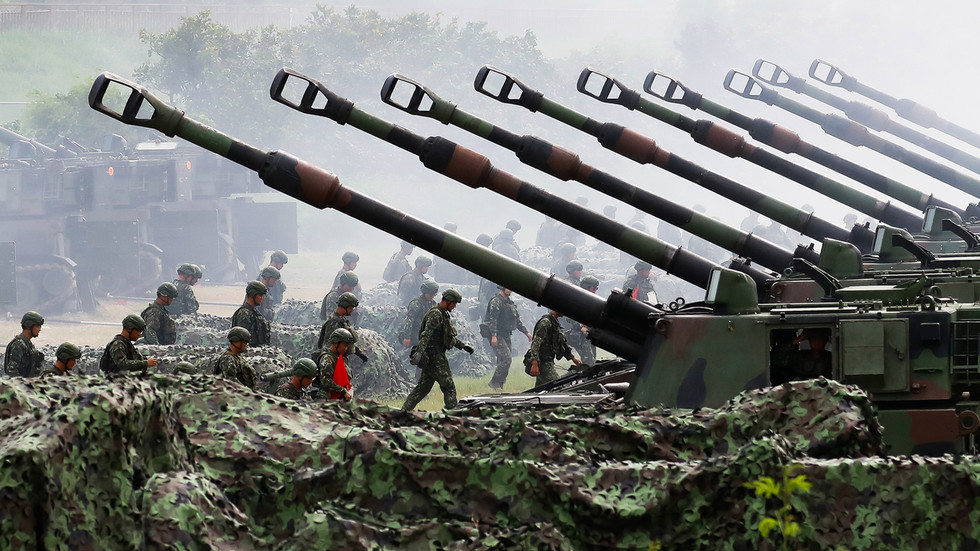In a significant move amid escalating tensions between the US and China, President Joe Biden has authorized $571.3 million in defense assistance for Taiwan. This announcement, made by the White House, underlines the US’s ongoing commitment to supporting the self-governing island, which Beijing claims is part of its sovereign territory. The aid package is substantial, including a potential sale of military equipment worth approximately $265 million, in addition to a $30 million sale of parts for 76-mm autocannons. This development occurs against the backdrop of a delicate geopolitical balancing act, as the US maintains its One-China policy, which recognizes Taiwan as a part of China while simultaneously engaging in military cooperation with Taipei.
The relationship between the US and Taiwan has been a point of contention for the Chinese government, which views US arms sales and diplomatic engagement with Taiwan as direct threats to its sovereignty and regional stability. In recent months, these tensions have escalated, with Beijing imposing sanctions on various US military firms and their executives in response to American arms sales to Taiwan. The US State Department’s approval of military packages to Taiwan, including a notable $385 million package in November following previous deals in October and September, has only intensified these tensions. China’s reaction has been swift and forceful; in response to perceived military provocations, both countries have increased military activities, particularly around Taiwan.
The situation has been further complicated by China’s military maneuvers in the region, which have included large-scale drills around Taiwan. In early December, Taiwan reported a significant increase in the presence of Chinese naval forces, the largest seen in three decades, prompting heightened vigilance on the part of the Taiwanese military. The government in Taipei remains acutely aware of the potential threats from China, which they assert will not “renounce the use of force” against Taiwan. These developments suggest a precarious situation, with each military maneuver and arms deal serving to exacerbate the existing tensions.
China’s Foreign Ministry has criticized US arms sales to Taiwan, asserting that such actions violate previous commitments made by the US under the August 17 Communiqué from 1982. This agreement indicated a US intent to gradually reduce arms sales to Taiwan and maintain a one-China policy. By continuing to supply military assistance, the US is perceived as undermining this long-standing diplomatic arrangement, which has significant implications for regional security and US-China relations. Analysts note that Washington’s ongoing support for Taiwan could lead to a prolonged military standoff in the region, complicating diplomatic efforts between the two global powers.
Moreover, logistical challenges have further delayed Taiwan’s acquisition of advanced military hardware from the US. A report from The Wall Street Journal highlights that Taiwan has faced extensive delays with arms shipments, leading to a backlog exceeding $20 billion in military supplies, including advanced systems like M1A2 Abrams tanks and HIMARS rocket systems. The difficulties in the supply chain reflect broader global challenges and have kept cutting-edge weapons out of Taiwan’s hands, highlighting the complexities of military readiness amidst rapidly changing geopolitical dynamics.
In summary, the situation surrounding US relations with Taiwan is unfolding against a backdrop of heightened military activity and significant diplomatic tension with China. The $571 million defense assistance package authorized by President Biden reaffirms US support for Taiwan, though this move raises questions regarding adherence to the One-China policy and will likely provoke further responses from Beijing. As arms sales and military cooperation continue, the implications of these actions will play a critical role in shaping security scenarios in the Asia-Pacific region and influencing the power dynamics between the US, China, and Taiwan moving forward. Each military development will be closely watched and scrutinized as the global community navigates this increasingly volatile landscape.

